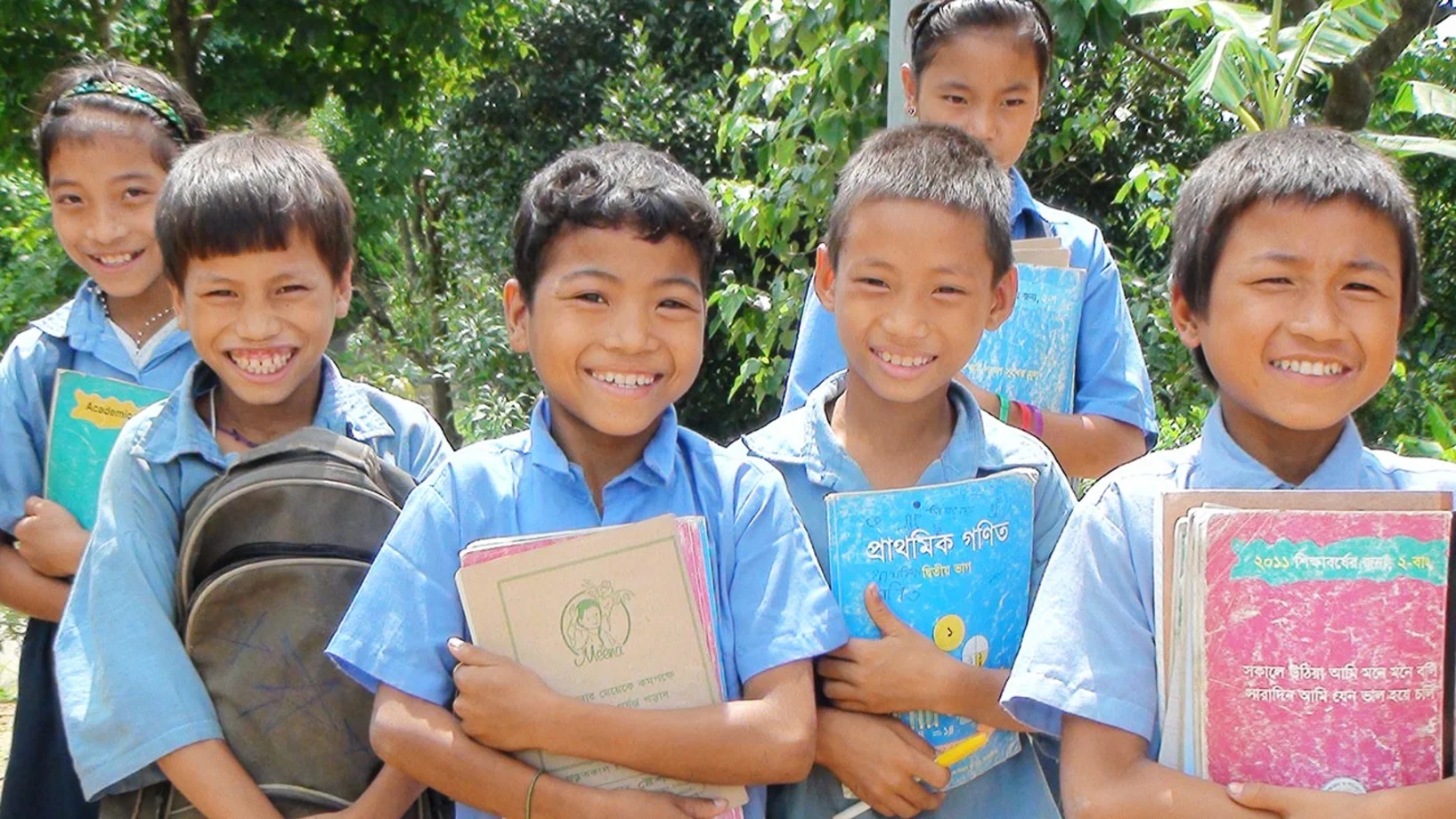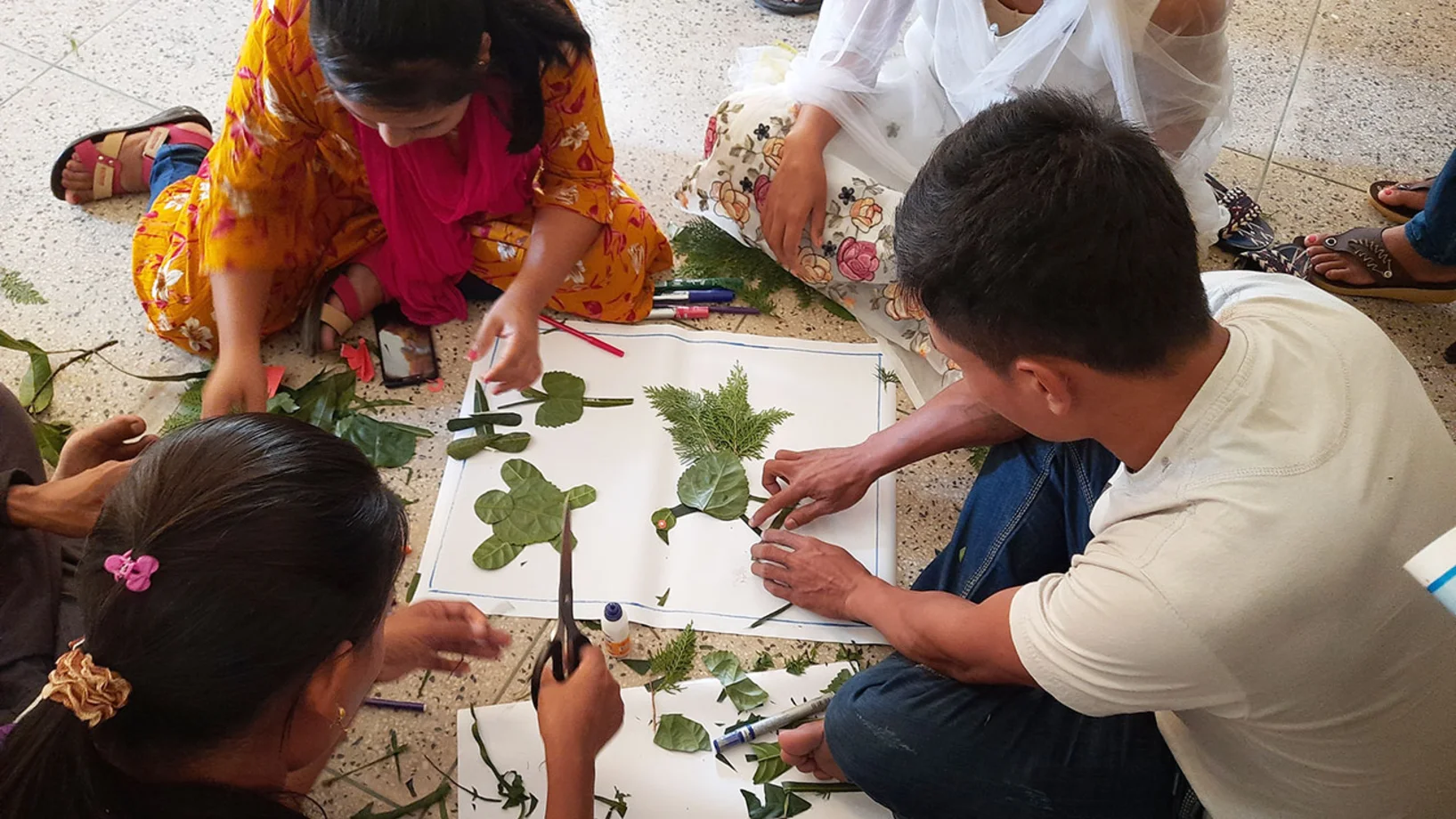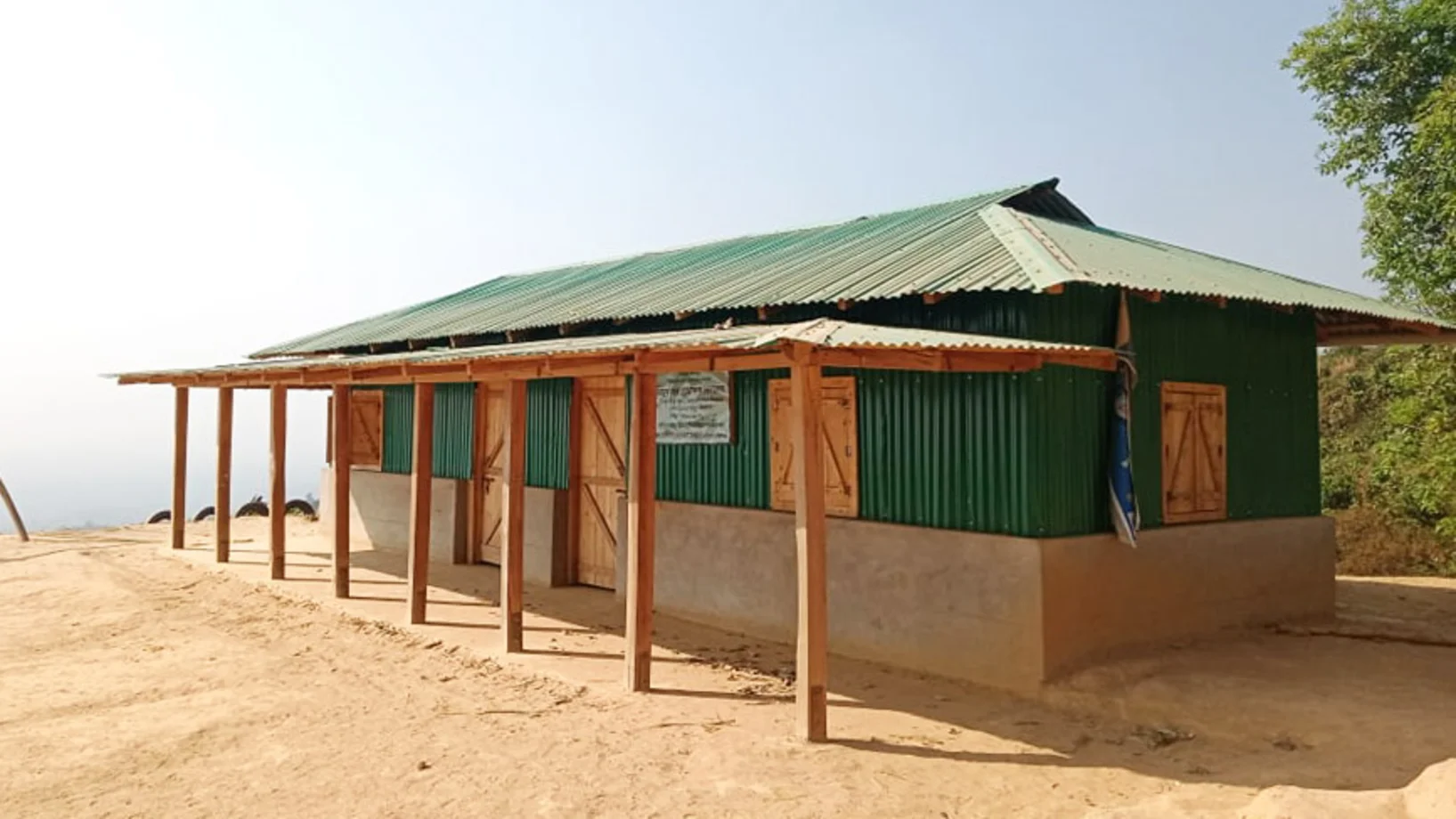About the aid project for minorities in Bangladesh
The «Rowa Kyang» aid project provides better prospects for the future of children from ethnic minorities. The project is located in the Bandarban Hill Tracts in southeast Bangladesh. This region is home to eleven ethnic groups («Hill Tribes», e.g. Chakma, Marma, Tripura, Mro). The indigenous population is socially and culturally very different from the Bengali majority population. The government of Bangladesh has actively promoted Bengali settlement in the Hill Tracts, expelling the indigenous people from their land. Today, the area is subject to military administration. The indigenous population continues to suffer from discrimination, loss of land (land grabbing), underdevelopment and poverty.
As access to school is missing for many ethnic minority children, the indigenous population remains on a low level of formal education. There is an urgent need for education of the coming generation to give the minorities and their culture some hope for the future. In response to this situation, CO-OPERAID and its partner organisation Humanitarian Foundation support 35 village schools, serving a total of about 1400 students per year. The aid project also includes services to support community development, health care and environment protection.
Village schools in Bangladesh: This is how you can help
Responsible indigenous Partner-NGO in Bangladesh
Die Humanitarian Foundation (HF) ist eine lokale, gut vernetzte NGO, die sich seit 1999 im Bandarban Hill District für marginalisierte und armutsbetrofffene Angehörige ethnischer Minoritäten engagiert.



